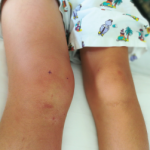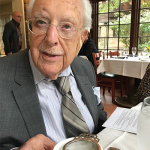2019 Lupus Foundation of America Gary S. Gilkeson Career Development Awards Emily Smitherman, MD, assistant professor, pediatric rheumatology, University of Alabama at Birmingham, and Children’s of Alabama, one of four recipients of the Gary S. Gilkeson Career Development Awards, is interested in identifying predictors for differences in disease activity within the pediatric population. To accomplish…









